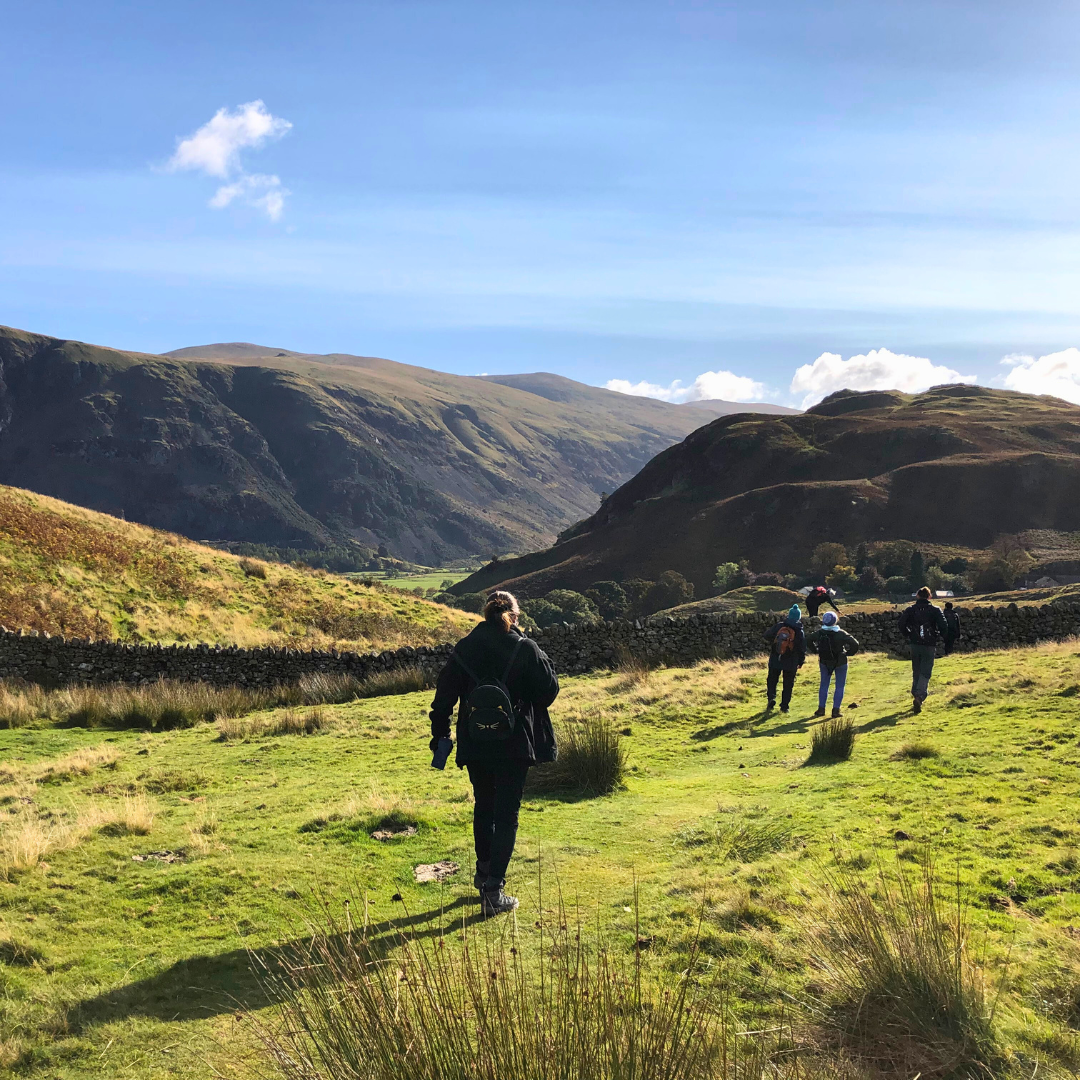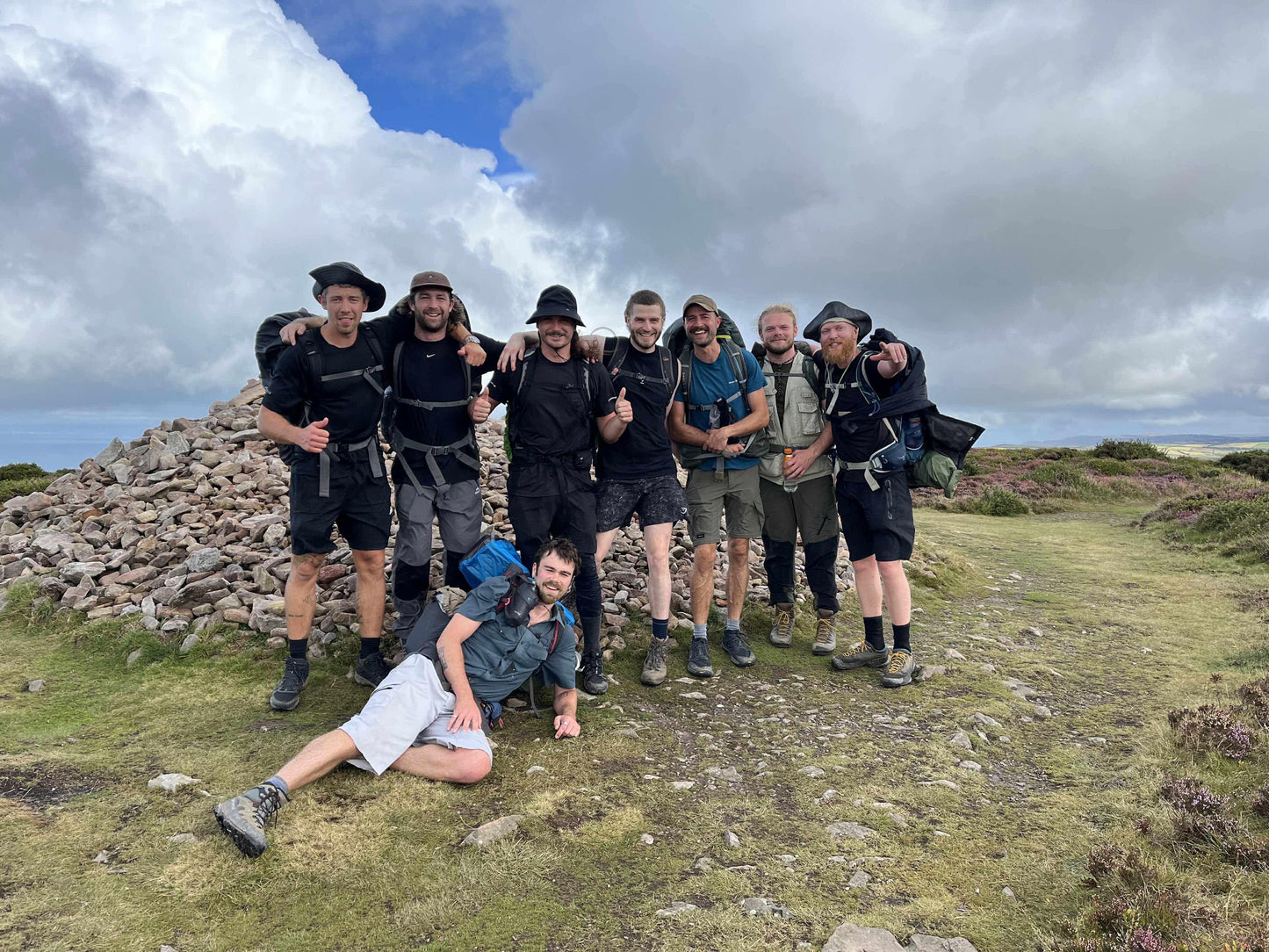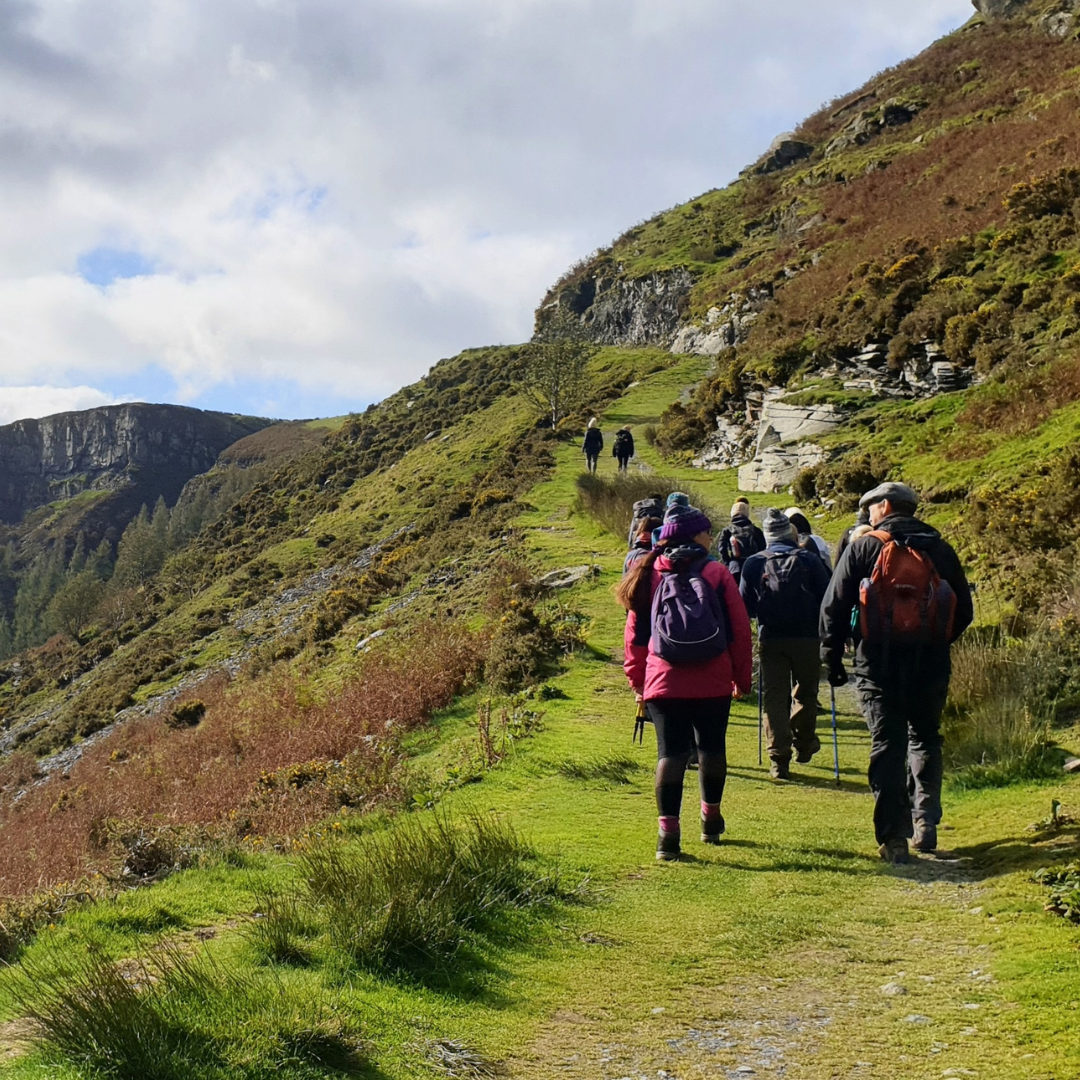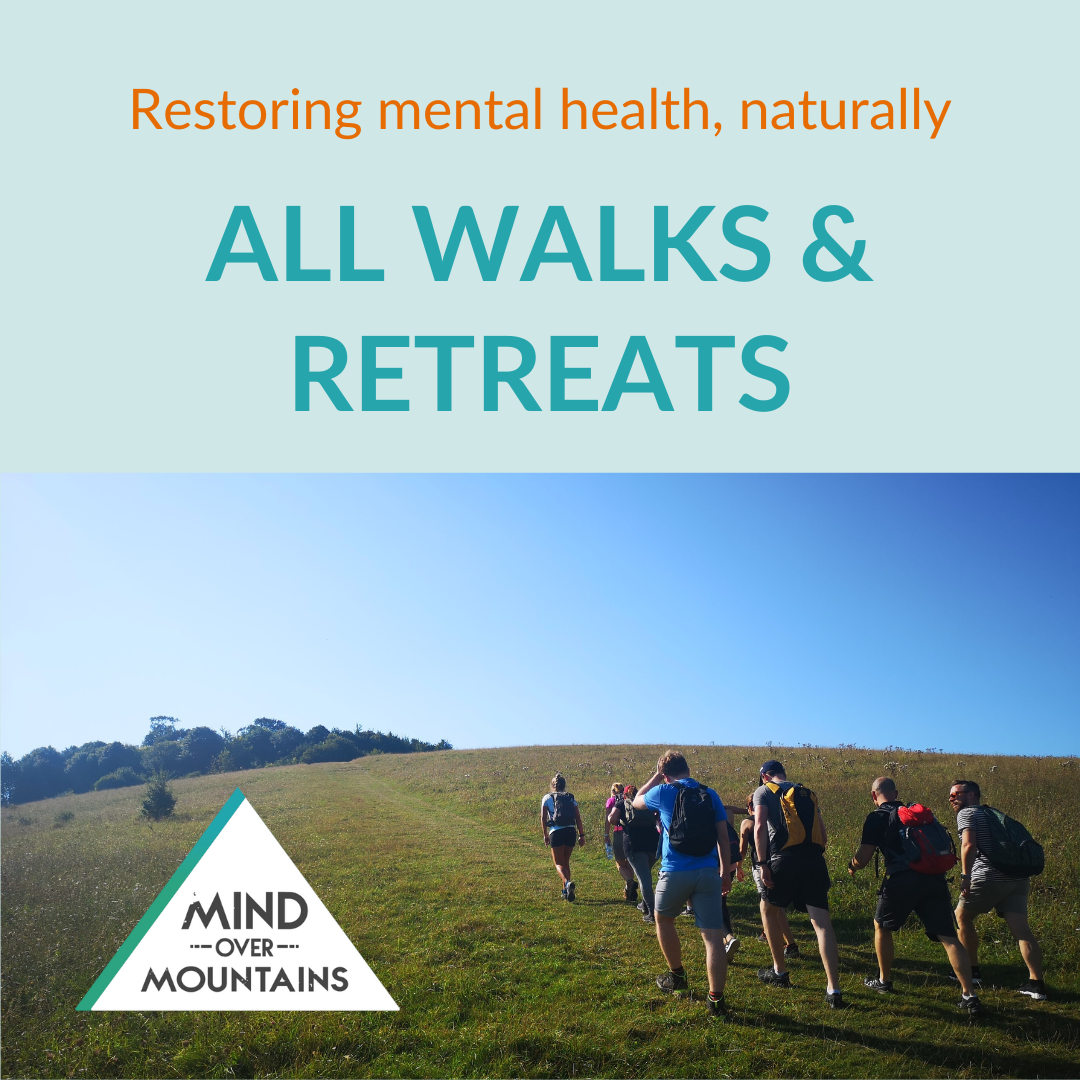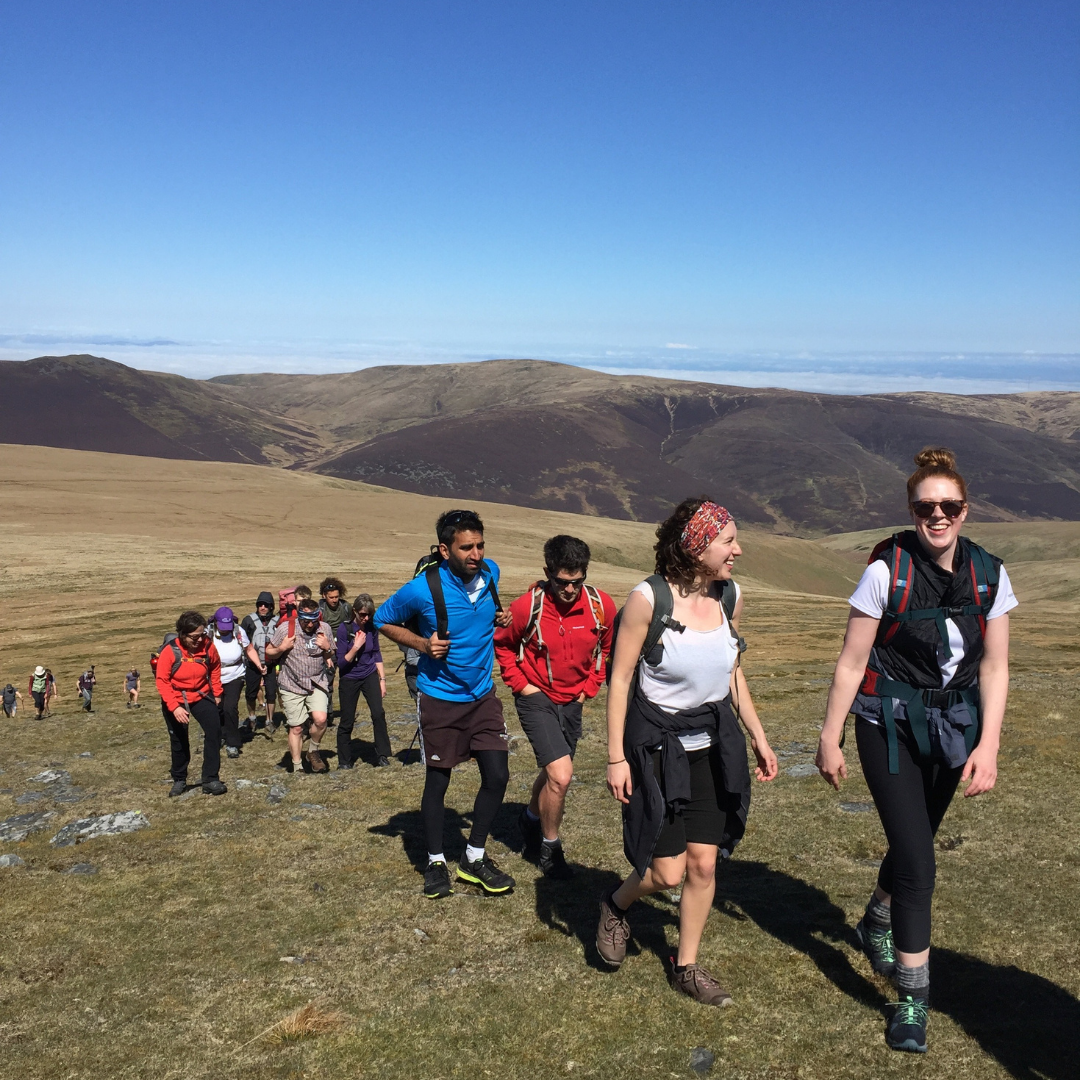

We all know that walking is great for our physical health. It helps us to maintain heart, bone and muscle health and can reduce the risk of us developing long-term health conditions too. But walking is about so much more than just physical wellbeing.
In the busyness of everyday life, it’s easy for stress to get on top of us. It can be hard to see beyond the things that are making us stressed or anxious too; we can lose perspective and become overwhelmed.
This is why we do what we do. We believe that there are so many mental health benefits to walking and talking with others, outside in nature. Here are just three reasons why we believe walk and talk therapy is so essential.
1.Walking helps conversations flow
Have you ever noticed how much easier it is to open up to others when you’re walking beside them, rather than sitting opposite them in a closed space? What is it about the act of moving our legs alongside another person that allows us to feel a sense of freedom, to have confidence in talking about how we feel?

Much of this is down to brain activity: when we’re moving, our brains are more active. We’re looking out for potential dangers - a fallen tree branch, a deep puddle, a dip in the ground - and because we’re more alert, we’re more able to access new ideas and topics of conversation. Our senses are heightened, and this makes us more able to really listen too.
And let’s face it, walking is a social activity. When we walk with others, we can connect with them in an unpressured way. We can tune in better and strengthen bonds more easily. And it doesn’t have to always be a walk with old friends either. Taking a walk with new or friends ye to be made can be just as powerful. Conversation naturally flows while you walk, so you may find it easier to nurture new friendships as a result.
“Opening up to people who started off as strangers is helping me be more open and honest to those around me on a daily basis."
2. Walk and Talk groups tap in to the Five Ways to Wellbeing
Walking and talking is at the very heart of what we do here at Mind Over Mountains. When we’re outside in nature, focusing on putting one foot in front of the other, it’s suddenly a lot easier to communicate. We can relax more easily, conversations flow better. We’re more able to connect, and to open up.
“You’re just out in nature. You’re on the side of a hill. It allows things to happen organically, more naturally... and that gives the opportunity for those that can’t open up easily, which is fantastic.”
So, what are the Five Ways to Wellbeing, and how can walk and talk groups benefit your mental health?
Developed by the New Economics Foundation, there Five Ways to Wellbeing are:

- Connecting with others, being social in ways that make sense to us. Walk and talk groups are an ideal example of this, and even a small group can help conversation flow. Walking along a path with others gives you the chance to speak to different members of the group without the restrictions you may face in other social situations.
- Getting active in ways that are sustainable for you. Walking is one of the most accessible ways to exercise - it requires little to no equipment and can be done by all abilities. And it doesn’t always have to be up a hill. A gentle stroll around the block with a friend can be enough to clear the mind and help you to reconnect.
- Taking notice incorporates mindfulness into your walks, which is something we know can make a huge difference. Your senses are already heightened with movement, so a walk outdoors is the perfect opportunity for you to really take in the colours of the trees, the birdsong around you and the feel of the ground beneath your feet.
- Learning something new or developing a new skill or hobby - who knows where your walk and talk sessions might take you? When you connect with others you open yourself up to learning more things - about them and about yourself. It can lead you along a path you never expected to take.
- Giving to others can be volunteering your time within your community, connecting with others and giving something to those in need. It can also be small acts of kindness for someone else, simply being there when you’re needed. Even the smallest of gestures for someone else can help us feel part of something bigger and give us purpose in life.
3. Nature is good for mental health
Having good mental health doesn’t mean being happy all the time. Nobody feels happy all the time. It's completely normal to experience peaks and dips in mood. So, looking after your mental health doesn’t need to mean stiving for ultimate happiness all the time, it can be about finding small glimmers that bring joy too. And that’s why we believe that walking in nature is such a powerful tool for mental wellness.

How do you feel when you witness the striking colours of a sunset on a late summer evening? How does the vibrant aroma of freshly cut grass make you feel? Or the sounds of fresh snow under your boots during a winter stroll? These are all small glimmers that nature gives us - and for so many of us, these small moments of joy can make a huge difference. Nature is also an amazing conversation starter!
“You can do what you want - and what you need - to do whilst you’re in nature. You don't have to worry about work, bills, energy prices, fuel prices. You don't have to worry about all the stresses, worries and responsibilities you've got at home. You can just enjoy being out, wherever you are.”


